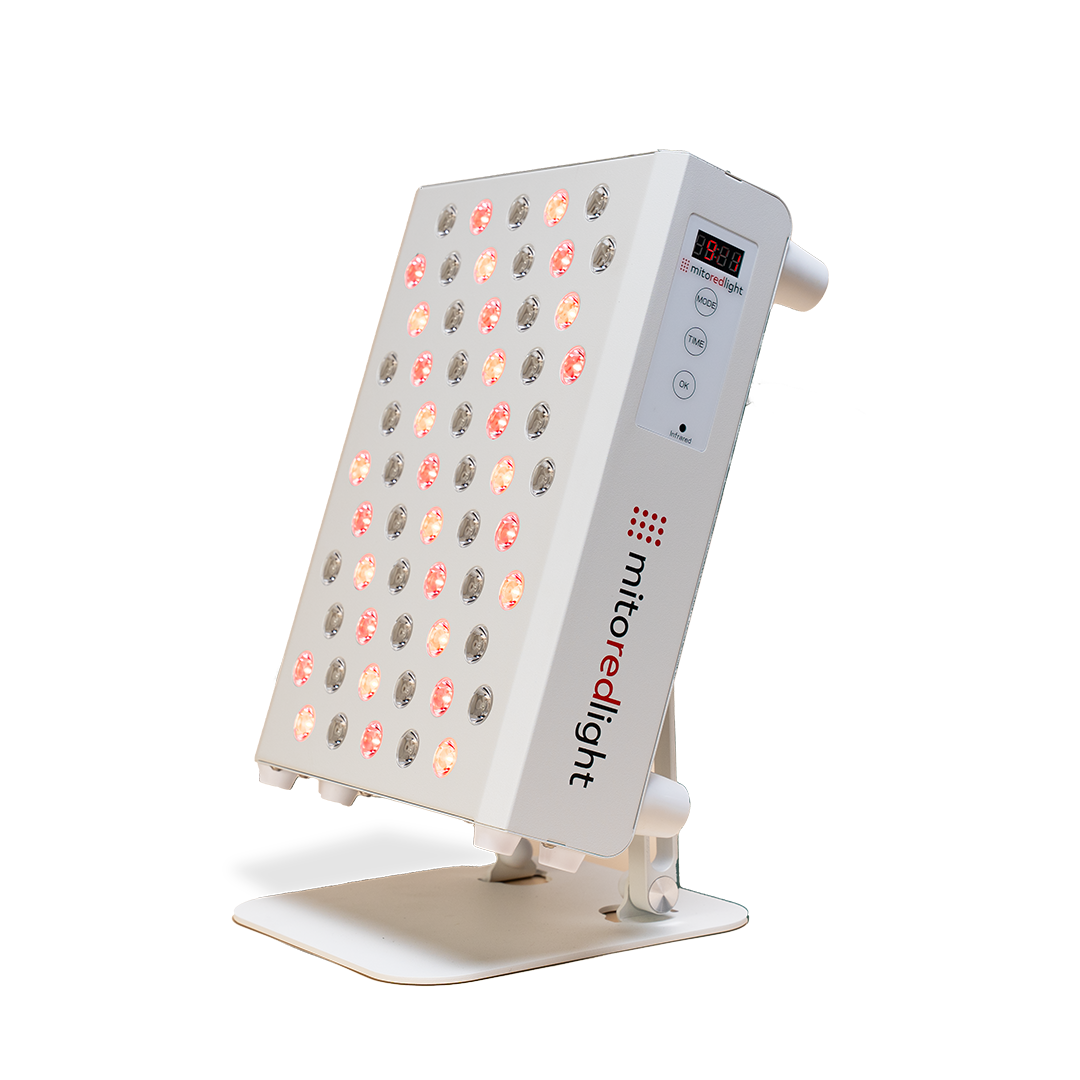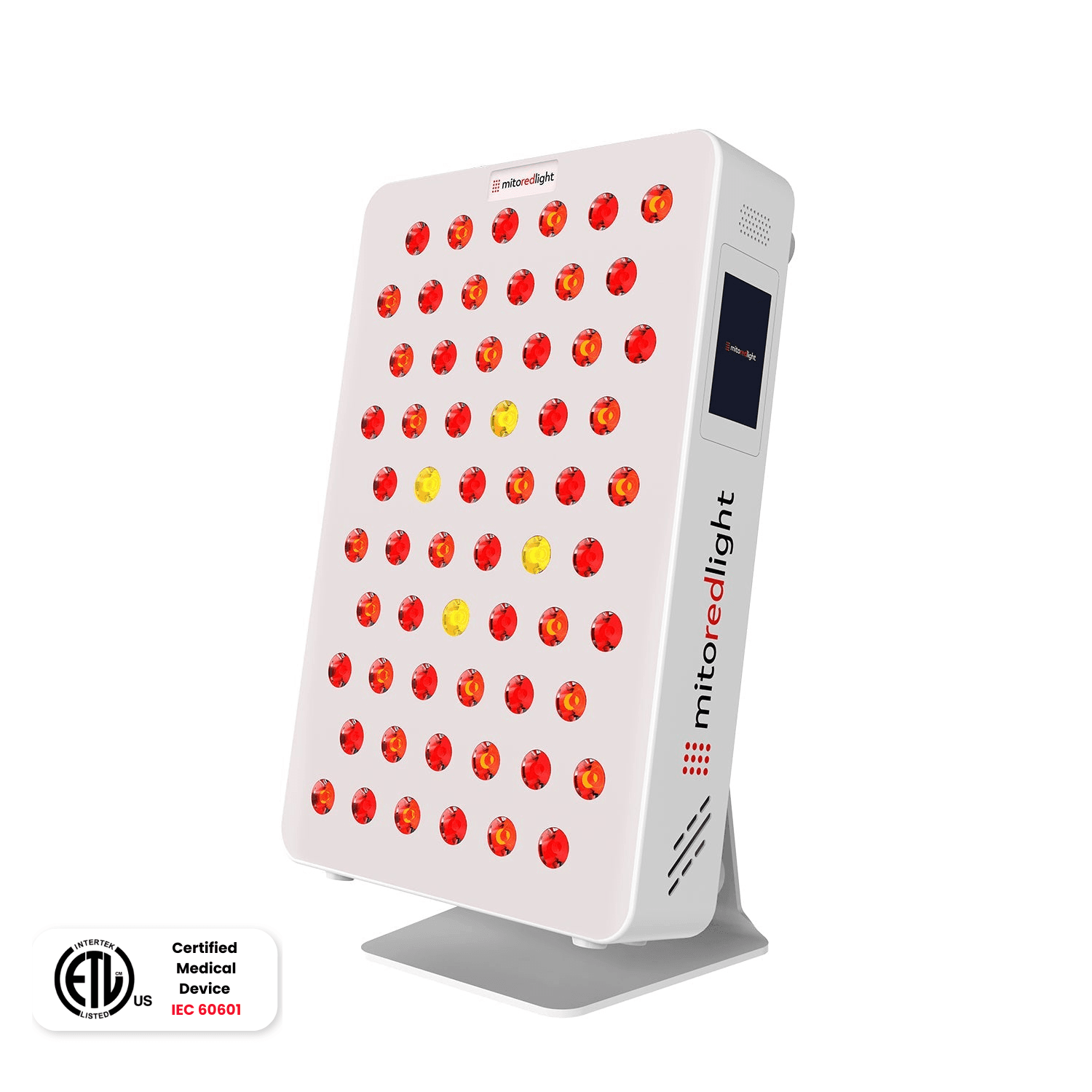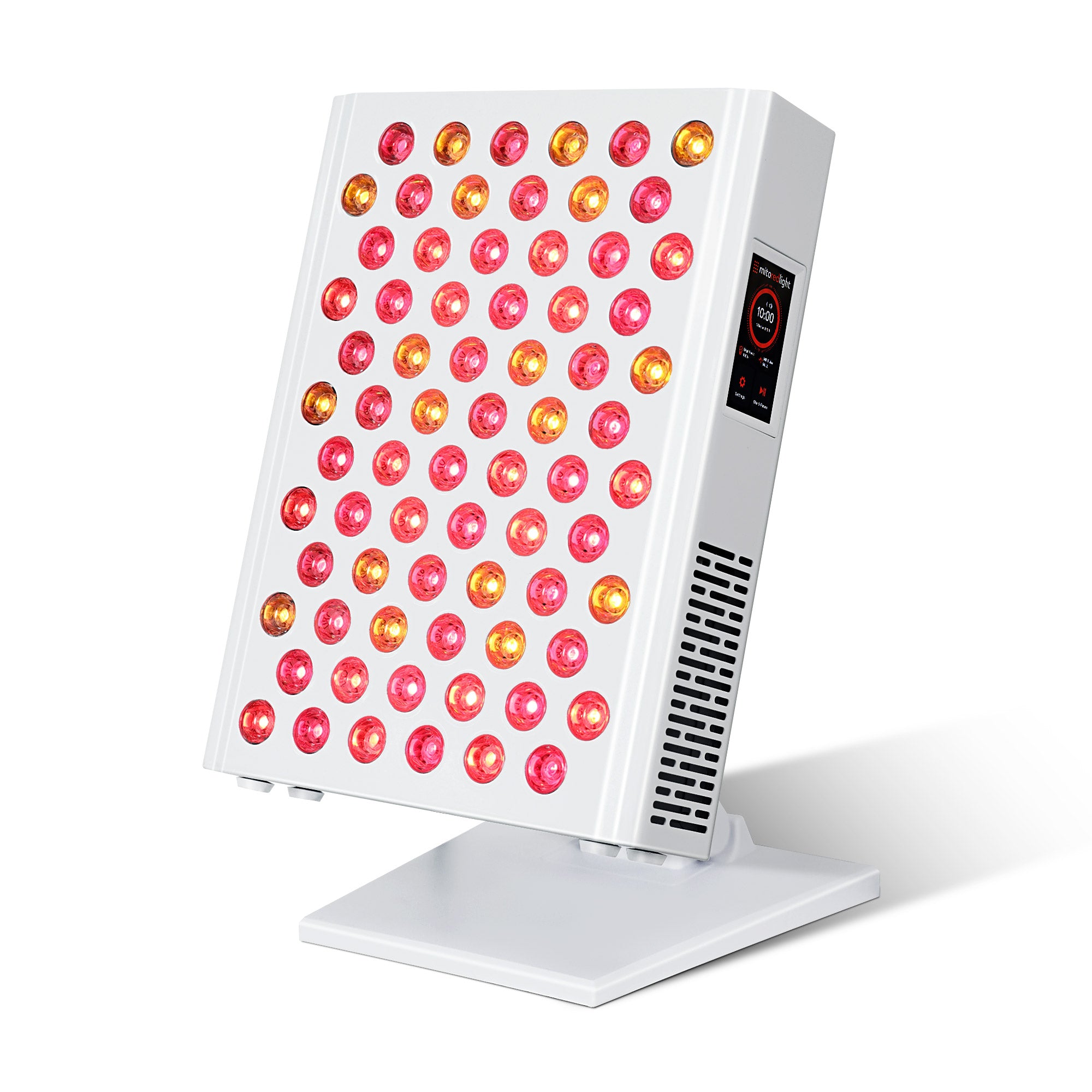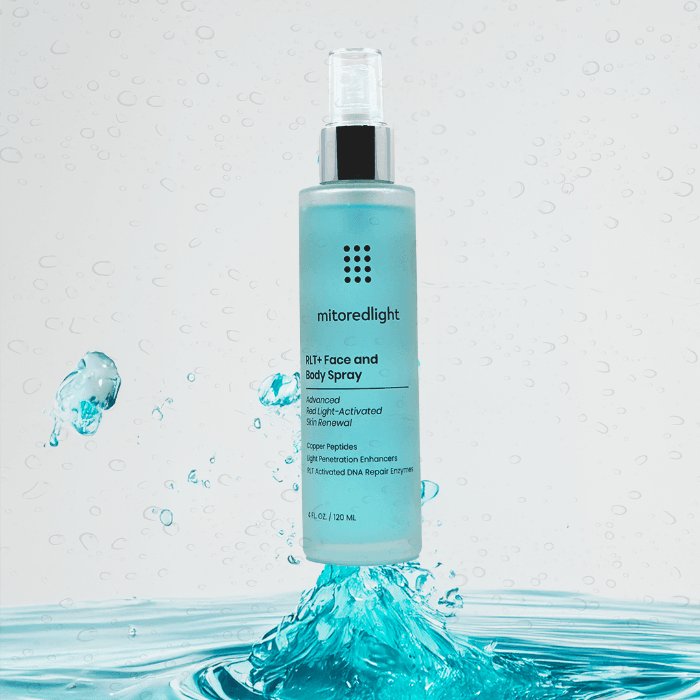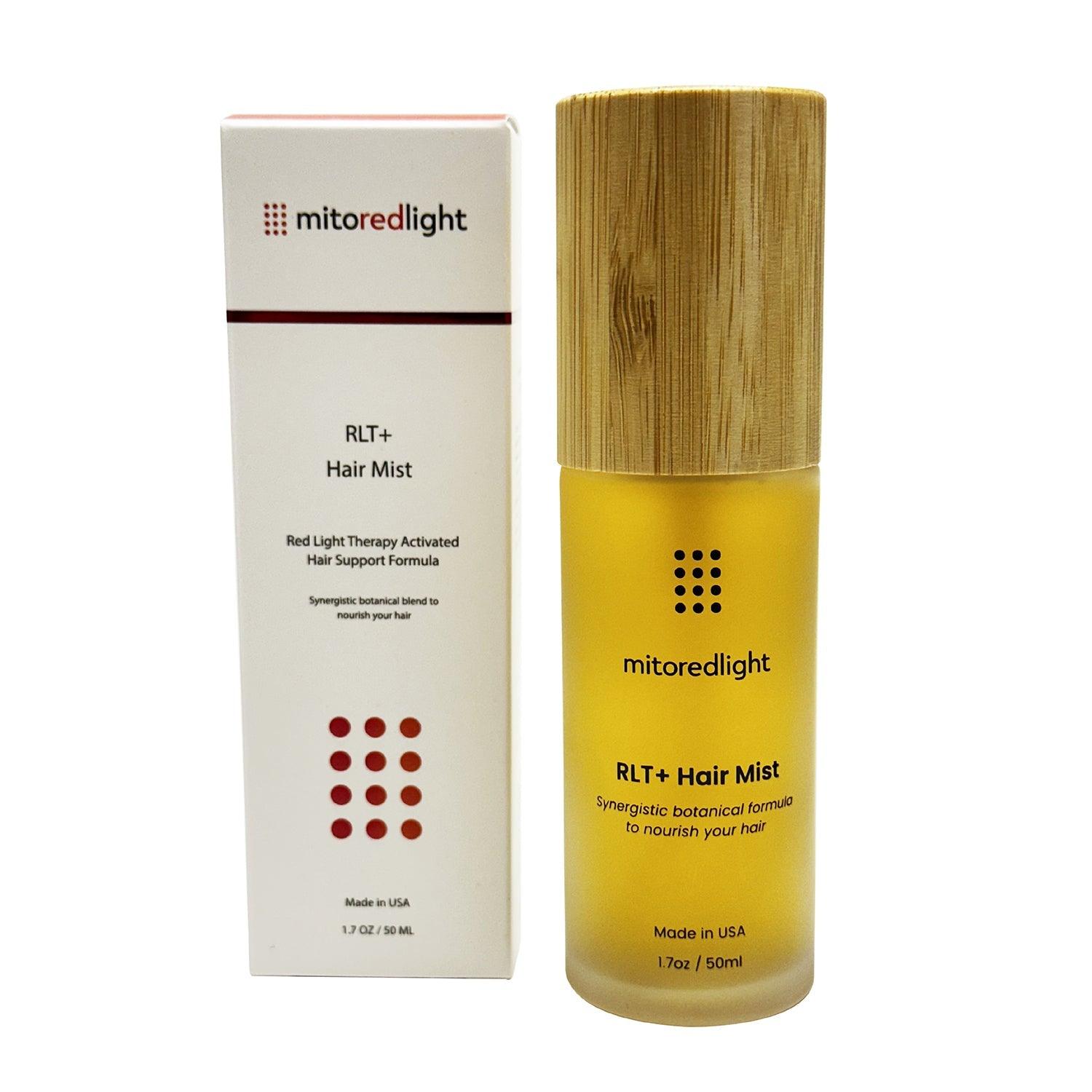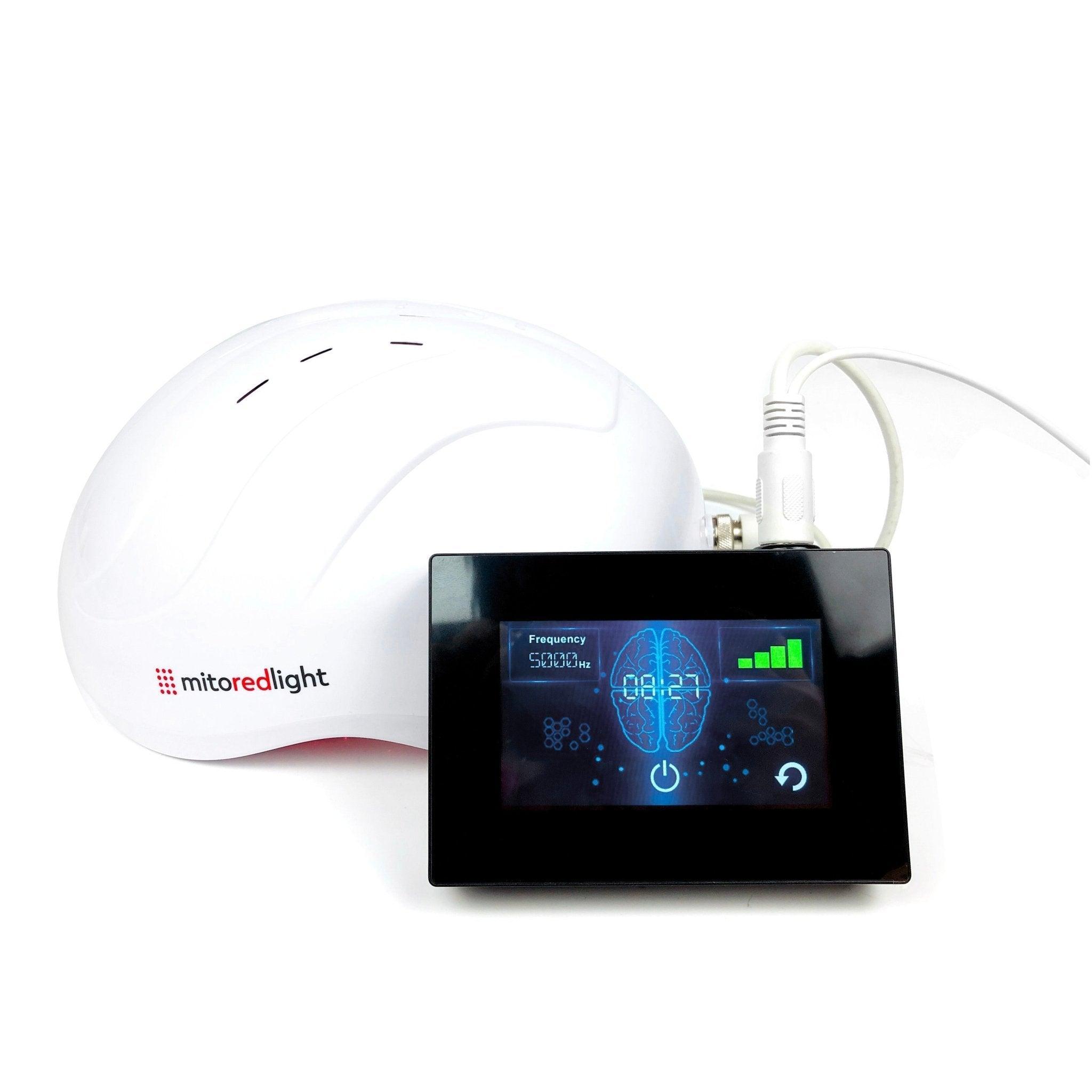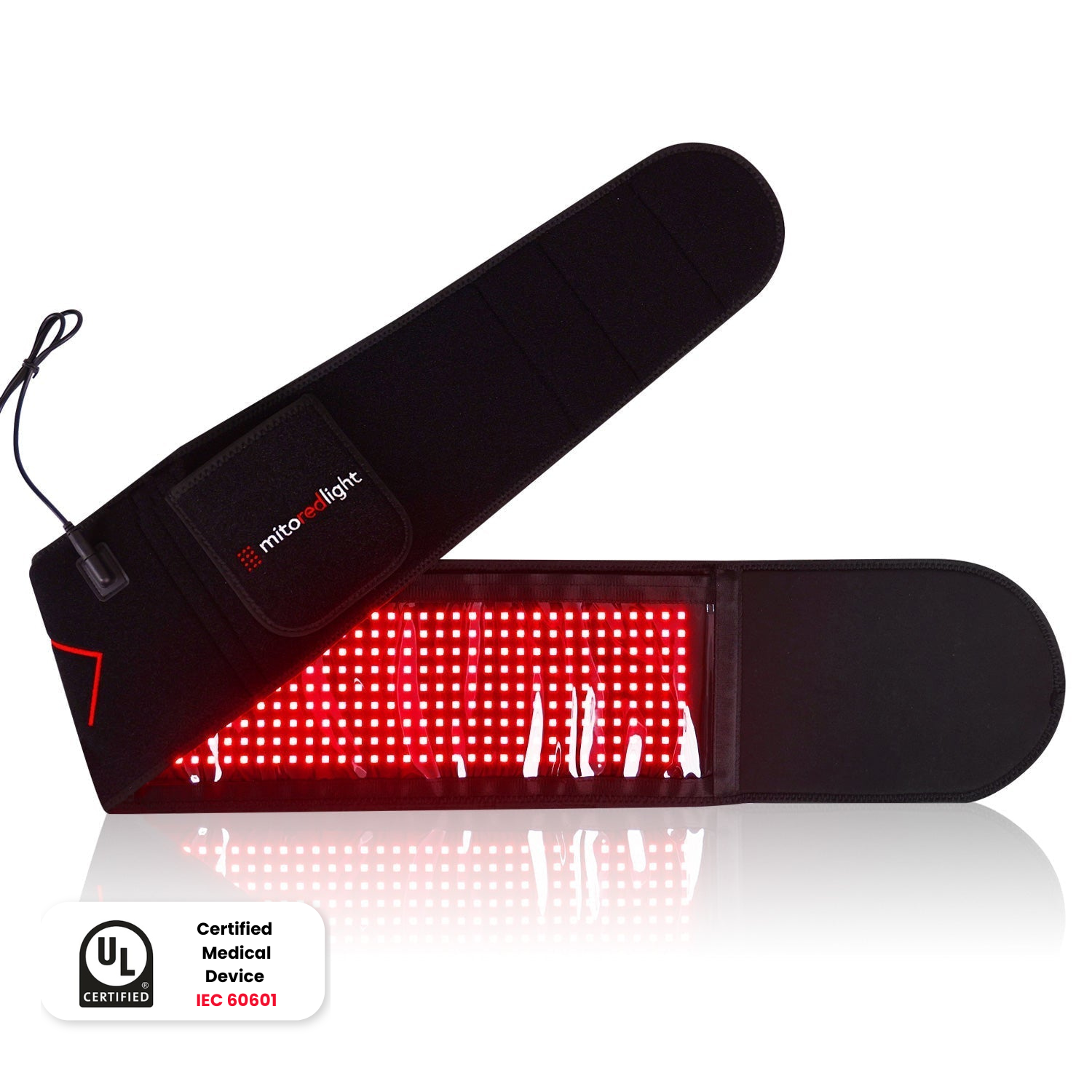DISCLAIMER: Mito Red Light devices are Class II wellness devices aimed at affecting the body through topical heating and supporting cellular function. The information provided in this article and on this site is for educational purposes only and is not intended to imply effectiveness of Mito Red Light devices for any specific application. The information provided in this article and on this site is not intended to diagnose, treat, cure, or prevent any disease, is not a substitute for consultation with a licensed medical provider and should not be construed as medical advice. Click here to read our article on potential contraindications of red light therapy..
Executive Summary
This Mito Red Light article explores working memory, the brain's active processing system for temporary information crucial for daily tasks, problem-solving, and learning. Factors like age, health, neurological conditions, cognitive load, and environment influence its efficiency. A strong working memory enhances problem-solving, multitasking, learning, daily navigation, social interactions, and potentially mental health. Working memory can be improved through brain training exercises, physical activity, addressing lifestyle factors, using mnemonic devices, and potentially incorporating red light therapy, which may support neuronal activity and overall brain health by compensating for reduced natural light exposure. Consulting a doctor is advised for significant memory issues. Mito Red Light suggests its devices as a way to integrate beneficial light for cognitive wellness.
Key Takeaways:
- Working memory is the brain's active system for processing temporary information.
- Several factors, including lifestyle and environment, affect working memory.
- A strong working memory is vital for various daily functions and learning.
- Working memory can be improved through targeted exercises and healthy habits.
- Red light therapy shows potential in supporting cognitive health, including working memory.
Medically Reviewed by | Heidi Wright, BSN, RN, PCCN
Here at Mito Red Light, we’re all about getting to the heart of how your mind works. Think of working memory as your brain’s very own live dashboard, where you manage everything from quick mental notes to complex problem-solving.
Whether it’s keeping track of a grocery list or piecing together a challenging math problem, working memory plays a key role in how we handle daily tasks and navigate challenges. But the big question is, can you actually improve this critical mental function?
Let’s explore what science says about enhancing working memory and how even subtle changes in our environment, like incorporating red light, might make a significant difference.
What Is Working Memory Anyway?
Ever wondered what happens in your brain when you try to remember a phone number or follow through on instructions? That’s working memory in action. It’s not just about holding information in your mind; it’s about actively working with it.
Here’s a breakdown:
- Dynamic Processing: Unlike just memorizing a fact, working memory involves actively engaging with information — manipulating and juggling different bits of data.
- Mental Workspace: Think of working memory as a mental workspace where various thoughts and pieces of information are temporarily held and processed.
- Executive Function at Play: This cognitive process is closely tied to what we call executive function — it’s what helps you plan, focus, remember instructions, and juggle multiple tasks at once.
From decoding a conversation in a noisy room to planning out your day with a to-do list, working memory is fundamental to how we operate. In essence, it’s less about storage and more about making sense of what’s around you right now.
This flexibility and processing power means working memory isn’t just a static capability — it’s an active, engaging part of your cognitive toolkit that we believe can be enhanced with the right strategies.
What Factors Affect Working Memory?
Now that you understand working memory, let's dive into the elements that influence its efficiency. It turns out, several factors play a role in how well you can manage and utilize this cognitive ability.
Age and Brain Development
Just like physical strength, working memory evolves through the stages of life. Children gradually develop this skill, which tends to peak in early adulthood and can change as we age. Keeping the brain engaged through various cognitive exercises can help maintain its agility.
Health and Lifestyle
Believe it or not, your overall physical health impacts your mental capacities. Regular physical activity, sufficient sleep, and a balanced diet contribute to better cognitive function, while stress and poor health habits can diminish it. For an added boost, tools like a vitamin D lamp may help support your intake of daily vitamins, especially during months with limited sunlight.
Neurological Factors
The brain’s anatomy itself, especially the health and functioning of the prefrontal cortex and the neurons involved, plays a crucial role. Neurological conditions, including ADHD (Attention Deficit Hyperactivity Disorder), can particularly influence working memory capabilities, making some tasks more challenging.
Cognitive Load
Working memory has its limits. The amount of information it can hold and the duration it can be retained is not infinite. High cognitive loads, or trying to process too many pieces of information at once, can overwhelm this system, leading to errors or forgetfulness.
Environmental Factors
The spaces where you live and work can also affect your cognitive performance. Cluttered, noisy environments can distract and reduce your ability to focus, whereas calm, organized spaces might enhance it.
Why Is a Strong Working Memory So Important?
When we talk about working memory, we're not just diving into a cool brain function; we're exploring a core element that significantly shapes our everyday experiences and capabilities. Here’s why boosting your working memory is a fundamental skill that enhances life across the board:
Seamless Problem-Solving
Imagine tackling a complex problem without the mental scratchpad to keep key details fresh. Working memory is that scratchpad. It lets you hold on to important bits of a puzzle — whether it's a math problem or a strategic decision at work — giving you the edge to solve issues efficiently and effectively.
Multitasking Mastery
Think about a typical day — how often do you switch between tasks? A good working memory allows you to flip between different activities without losing your place. It’s like having the ability to pause a video game in one room, start a laundry load in another, and then return to your game without missing a beat.
Learning and Adaptation
Every new skill or piece of knowledge requires the ability to connect new information with what you already know. A strong working memory holds information long enough to be knitted into the broader fabric of your knowledge, making learning not just possible but more accessible.
Navigating Daily Life With Ease
Whether it’s following directions to a new place or keeping track of important dates and commitments, working memory plays a critical role in how we manage daily life. It's the difference between feeling on top of your schedule and always feeling a step behind.
Enhanced Social Interactions
Have you ever been in a conversation where you needed to remember key details of what was just said? Working memory allows you to retain those details, engage in meaningful dialogues, and respond thoughtfully. It’s essential for connecting with others in a meaningful way.
Support for Mental Health
Strong working memory can indirectly support your mental health. Reducing the cognitive strain of everyday tasks allows you to approach challenges with a clearer head, reducing stress and enhancing your overall well-being.
“Furthermore, a strong working memory can contribute to improved emotional regulation. When you can effectively hold onto and process information, you're better equipped to understand and manage your emotions. For instance, if you're feeling stressed about an upcoming deadline, a strong working memory allows you to break down the task into manageable steps, prioritize effectively, and focus on solutions rather than dwelling on negative emotions. This ultimately promotes a sense of control and reduces the risk of emotional overwhelm,” highlights Heidi Wright, Registered Nurse.
Is It Possible To Improve Your Working Memory?
After learning about the significant roles working memory plays, you're probably wondering if you can actually enhance this dynamic cognitive ability. Fortunately, the answer is a resounding yes. Research and practice have shown that there are several ways to strengthen this aspect of your mind — here are some of them:
Engage in Brain Training Exercises
One of the most direct approaches to boosting working memory is through targeted brain training. This can include activities designed specifically to improve cognitive function:
- Memory Games: Engaging in various memory games can challenge your brain and enhance your memory abilities. These games often require you to recall patterns, numbers, or facts, exercising your mental muscles.
- N-Back Tasks: This particular type of task involves presenting a sequence of stimuli (like letters or numbers) and asking the participant to indicate when the current stimulus matches the one from “N” steps earlier in the sequence. It's a proven method to enhance working memory in real-life scenarios.
- Video and Card Games: Surprisingly, certain video games and card games that require strategic thinking, problem-solving, and quick decision-making can also improve working memory. Games that require you to remember and utilize complex multi-step directions are particularly beneficial.
Participate in Physical Activities
Studies have consistently shown that physical exercise is not just good for the body, but also for the brain. Regular physical activity, especially aerobic exercise, can enhance neurogenesis (the growth of new neurons) and improve overall brain health, which in turn benefits cognitive functions, including working memory.
Address Lifestyle Factors
Improving your overall health through better sleep, nutrition, and stress management can contribute to better cognitive functioning. Ensuring that you get enough rest, eat a balanced diet rich in omega-3 fatty acids, and manage stress through mindfulness or meditation can help maintain and improve your working memory.
Use Mnemonic Devices
Mnemonics are tools that help you remember information by encoding difficult-to-remember data into patterns or associations that are easier to recall:
- Mnemonic Devices: Simple tricks like using acronyms, visualization, or rhymes can significantly enhance your ability to remember information. For example, remembering the directions North, East, South, and West can be made easier with the mnemonic "Never Eat Soggy Waffles."
- Application in Daily Tasks: Apply these techniques to remember lists, steps in a process, or important dates. This not only improves your working memory but also helps in encoding long-term memory more effectively.
Explore Red Light Therapy
At Mito Red Light, we're particularly excited about the potential of red and NIR light therapy in supporting cognitive health. While the research is ongoing, preliminary studies suggest that red light therapy can support neuronal activity and overall brain health, which may include benefits to working memory.
Today, most people spend too much time indoors, leading to a lack of exposure to light wavelengths that red light offers. Red light therapy at home is a great way to make up for this and support your overall wellness.
Our red light panel series offers holistic wellness support, especially when used alongside other lifestyle and training interventions.
When Should You Consult a Doctor About Your Memory?
Exploring ways to enhance your working memory is an empowering journey, but sometimes, despite our best efforts, we might find ourselves needing a bit more help. If you or someone you know is struggling significantly with memory tasks, facing challenges in managing daily activities, or noticing a decline in cognitive functions, it might be time to consult with a professional.
Cognitive issues can stem from various underlying factors, including neurological conditions, mental health issues, or developmental disorders. A healthcare professional can offer comprehensive assessments, tailored advice, and support strategies that are beyond the reach of general wellness tips.
Remember, seeking help is a sign of taking control, not conceding defeat, and it’s a proactive step towards maintaining and enhancing your cognitive health.
The Wrap Up
So, is it possible to enhance your working memory? Absolutely — the techniques we've discussed provide a solid foundation for strengthening this essential cognitive function. As research continues, the promise of further improvements remains exciting.
At Mito Red Light, we understand that modern lifestyles might not provide enough natural light, crucial for optimal health. This is where our red and NIR light therapy devices come into play, offering a unique way to combat this.
If you're looking to integrate this beneficial light back into your daily routine, explore our innovative solutions designed to enhance not just your working memory but your overall vitality.
Ready to illuminate your path to better brain health? Check out our products and see how you can start your journey towards a brighter mind.
Click to learn more about potential red light therapy benefits.
See our Community page for Mito Red Light Therapy Near Me
Related Articles:
How To Prep Your Skin Before Red Light Therapy
Everything You Need to Know About Red Light Therapy and SKIN
Red Light Therapy Masks vs. Panels
Retinol and Red Light Therapy: Are They Safe Together?
Sources:
What is working memory? | Understood
What Is Working Memory? | Child Mind Institute
Why Is Working Memory Performance Unstable? A Review of 21 Factors | PMC
How limited is working memory capacity? | Evidence Based Education
Research Spotlight: Can Light Therapy Help the Brain? | Public Health
